Company Registration in Canada
Canada is known as one of the best countries in the world for investing and gaining wealth. Canada is a rich and developed country and living in this country is associated with the highest level of social welfare. Although this country has 10 states, and each of these states is independent to enact its own internal rules and regulations for investment, Investment Canada Act generally have a similar pattern, and the only differences are often in the type of investment. Company registration in Canada is very easy and the registration restrictions of the company are much less. Investors in Canada can obtain Canadian residence and citizenship. Access to the best markets in the world is very easy and without restrictions for sales and rental exchanges. Raw materials needed for production are abundant in Canada.
Investment Canada Act
Generally, an alien must first obtain an investment permit from the Federal Reserve under the 1974 Act to trade in Canada, but special rules have been developed to facilitate and eliminate restrictions on international trade and investment treaties for OMC member states. In Quebec, in particular, there are fundamental restrictions on alien trading, and special rules and regulations have been developed in this regard.
Legal entities outside the Canadian Union, including sole proprietorships (partnership), are controlled by the Canadian government, and the identity of shareholders and interests and also their voting rights, is determined by law. If a foreigner in companies owns a majority stake based on interest and voting rights, such capital is under control. Regarding financial services and the radio and telecommunications sector, the legislature has made an exception to Investment Canada Act.
Until recent years, foreigners could not collectively own more than 25% of the voting rights in federal financial institutions, while a foreigner could own 10% of the voting rights. The World Trade Organization (WTO) agreements led the Canadian Federal Parliament to repeal the foreign ownership restriction on the financial institutions of the federal system, and similarly, the voting rights of 12% of the total shares were removed on foreign banks.
Entry of a foreign bank into Canada
Under the Agreement of the World Trade Organization and Agreement (ALENA), controlling the entry of a foreign bank into Canada requires two conditions. First, the foreign bank cannot operate by opening a branch, and the Minister of Economic Affairs and Finance authorizes the establishment of the foreign bank when it is beneficial to Canadian financial system and the other country treats Canadian banks the same way. Meanwhile, the foreign bank cannot own more than one branch in Canada without the permission of the Ministry. This restriction does not apply to the members of the Union (ALENA).
The banking law in Canada is stricter than the investment law, and Investment Canada Act is less of a barrier to foreign investment, and the ownership of mass media and radio broadcasting should be owned and controlled by the Canadian, and regarding the exploitation of uranium resources, a foreigner cannot have own than 40% of shares too. Land, air, sea, and commercial fishing permits are also issued by the government to the foreigners, and buying and selling the agricultural land is prohibited for non-Canadians.
Regarding land transfer, provincial laws impose restrictions and the transferor must pay 33% of the value of the land as tax, and in joint stock companies under paragraph 2 of Article 105 of the law of the mentioned companies, the majority of directors must be Canadian residents and citizens. The General Assembly and the Board of Directors cannot be held without the directors residing in Canada.
Finally, the foreigner like a Canadian can sue in judicial authorities, but in the province of Quebec, foreign plaintiffs are required to pay bail and they compensate the court costs and damages in case of rejection of the lawsuit from the place of bail.
Types of Company in Canada
There are three types of companies in Canada:
Corporation
In this type of company, each person participates in the company according to his income and the liability of all the obligations of the company is primarily with the investor of the company. To register a corporation, at least two people must participate together. The bankruptcy of a corporation does not mean the bankruptcy of its members. Also, registering this company requires a lot of capital and cost.
Sole Proprietorships
It is a reputable law firm that is owned by an individual and all his income is considered as the income of the company, so the company tax intersects with the individual tax and is paid, which is not very cost-effective. The liability of this type of company is entirely at the discretion of the individual, just like a partnership, and if the company goes bankrupt, it will be registered in the name of the individual, which will be recorded to the detriment of the individual due to strict business laws in Canada.
Joint Stock Company or Partnership
In this type of company, at least two to several people must provide the company shares together. This way is the same as the one of registering a sole proprietorship, except that bankruptcy or loss-sharing is done among the partners.
Company Registration in Canada and its Registration Process
In general, company registration in Canada is not a complicated process. In this section, we will get acquainted with the company registration process in Canada.
We should first choose a suitable name for the company. This name should be related to the type of business of the company and should not be similar to well-known and large companies, but it is necessary to distinguish between the company name and other companies. In Canada, this is very strict and should not take more than 90 days. You can use the online company registration system in Canada to make your work easier.
The completion of the company articles of association is the second step in the registration of a company. At this stage, the proposed name of the company, place and area of the company establishment, type of company structure, your share and other persons in the type of stock transfers in the company, company regulations, as well as the number of affiliates and board members should be mentioned in the company articles of association. The articles of association should usually be translated into French as well as English. Addresses and telephone numbers should also be accurately recorded.
The CEO of this company must be over 18 years old. He or she must have a certificate of no criminal record from the court, and must not be in a state of bankruptcy, and also a legal entity cannot be the CEO, and this position must be obtained by a natural person.
At this stage, you should complete the partnership registration form and pay the costs of applying for company registration in Canada.
By following the investment laws in this country, you can register your company and start developing your business, because Canada is one of the countries that has attracted a lot of attention from foreign investors.

